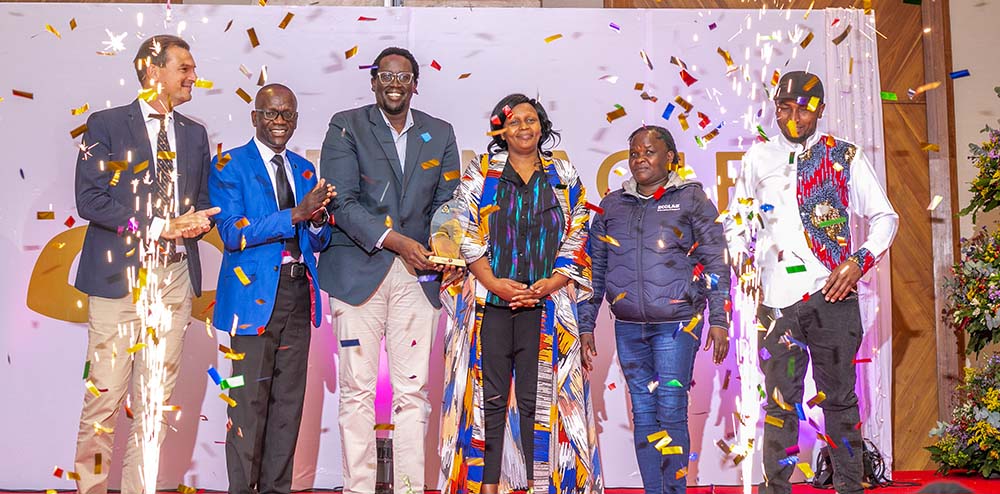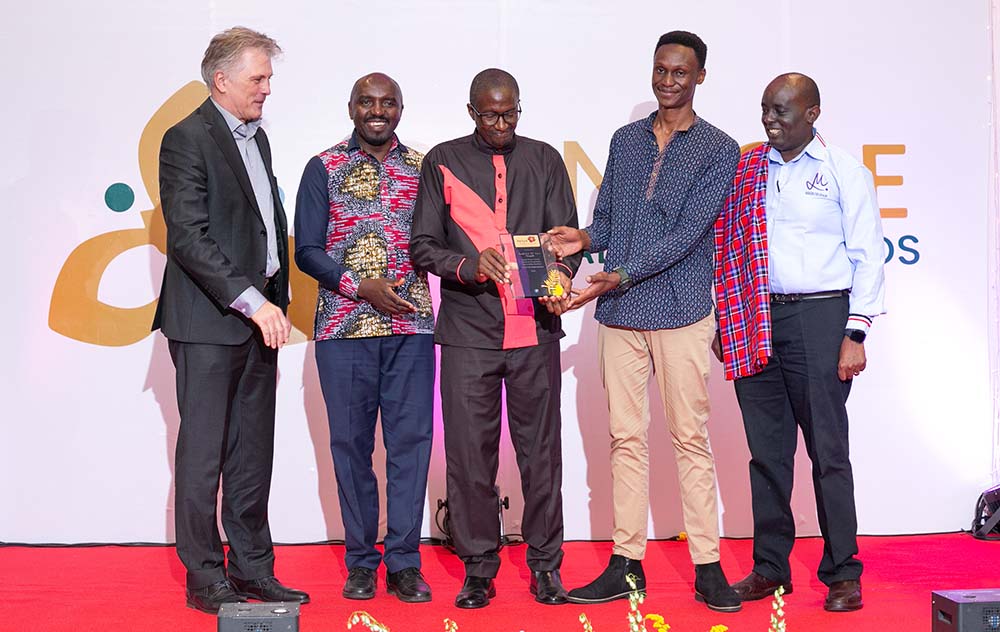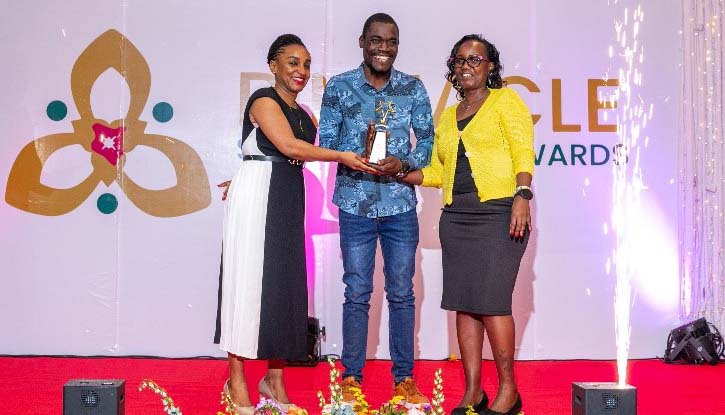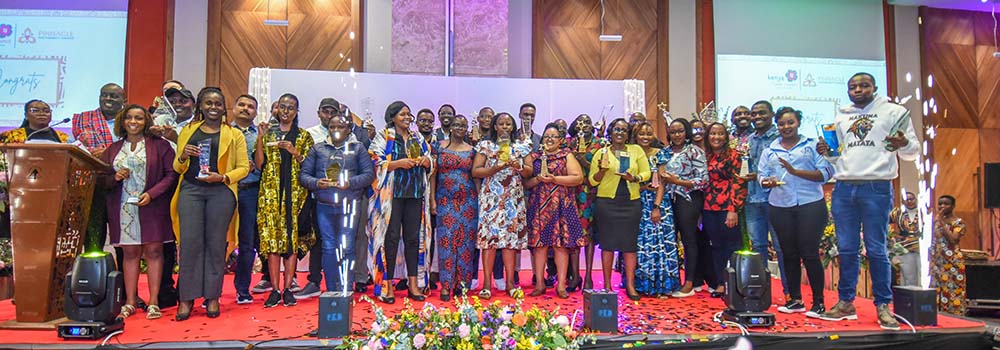
The Kenya Flower Council (KFC) last week hosted the second edition of the Pinnacle Sustainability Awards at the Emara Ole Sereni Hotel in Nairobi, a glamorous evening that celebrated excellence and innovation in sustainable floriculture. The event drew growers, exporters, government officials, international partners, and industry leaders, all gathered to acknowledge the strides Kenya’s flower industry has made in embedding sustainability at the core of its operations.
The Pinnacle Sustainability Awards, the first of their kind in the country, were launched in 2024 to showcase the best of Kenya’s floriculture while driving industry-wide transformation. Now in its second year, the awards have grown in both scope and participation. A total of forty-two farms and organizations drawn from eleven counties took part, with thirty-nine producer members and three associate members submitting entries. Twenty-three participants advanced to the final stage, competing across nine categories designed to reflect the multiple dimensions of sustainability in floriculture, from soil health and waste management to community partnerships, innovation, and youth empowerment.

Kariki Ltd BT Farm in Nanyuki receives a plaque recognizing them as one of only eight farms to achieve Gold Certification under the Kenya Flower Council’s Floriculture Sustainability Standard (FOSS).
Filippo Amato, the First Counsellor and Head of Trade Section at the European Union Delegation to Kenya, who delivered a strong message affirming the role of Kenya’s floriculture as both an economic driver and a force for good. Amato commended the nominees and winners, describing them as ambassadors of Kenya’s commitment to sustainability. He noted that Kenyan flowers not only brighten homes across Europe but also embody values of responsibility, creating jobs, investing in communities, and safeguarding the environment for future generations.
Among the evening’s top honorees was Timaflor Limited, which clinched the prestigious Golden Bloom Award in the large-scale category. Kariki Ltd’s KR Farm in Juja won in the medium-scale category, while Jangwani Roses PLC triumphed among small-scale growers.
Other notable winners included Kisima Farm Limited for Most Efficient Constructed Wetland, Red Lands Roses SEZ PLC for Best Sustainable Packaging, Tambuzi Limited for Best Soil Health Management, and Nini Limited for Best Employee Welfare Programs. Carzan Flowers (K) Ltd in Rongai was celebrated for its organic waste management practices, Kisima Farm also shone in community partnerships, Flamingo Horticulture’s Kingfisher Farm emerged as the Sustainability Excellence Award winner, and Sian Flowers’ Maasai Flowers (K) Limited took home the Innovation Award. The Young Growers Award went to Benev Flora Limited, highlighting the sector’s recognition of rising talent and fresh leadership.

The Kenya Flower Council’s Chief Executive Officer, Clement Tulezi, used the platform to reflect on the achievements and challenges facing the industry. He reminded the audience that floriculture has grown into one of Kenya’s most enduring economic success stories, today ranking as the fourth-largest exporter of cut flowers globally with a 6.4 percent share of the international market. The sector generates more than one billion US dollars in annual foreign exchange, contributes up to three percent of national GDP when horticulture is included, and provides livelihoods for more than two million people. Tulezi described the industry as one that tells a story of resilience, innovation, and passion, but also one that must prepare for an uncertain future.
“Climate change, regulatory shifts, logistics disruptions, and global competition continue to shape the future of our industry,” Tulezi said, striking a balance between optimism and caution. “But with innovation, unity, and vision, I believe we will not only survive but thrive. Our goal remains clear: to make Kenya the world’s most sustainable, competitive, and trusted source of high-quality flowers.”
KFC Board Chair Chris Kulei, who is also a director at Sian Flowers, echoed these sentiments, stressing that the awards were about recognition and encouragement. He highlighted the importance of documenting and amplifying the progress already being made by farms of all sizes. According to him, the Pinnacle Awards exist to honor those who go above and beyond while inspiring others to raise their standards. “Your commitment to showcasing your sustainability journeys is a testament to the progress we are making as a sector. You are the reason these Awards exist—to recognize and amplify the work being done on the ground every single day,” he said.

Central to the transformation of Kenyan floriculture is the Flowers and Ornamentals Sustainability Standard (FOSS), developed by KFC to provide a globally benchmarked code of practice. The standard has allowed farms to meet stringent international requirements while embedding sustainability into their operations. The results are already visible: ninety-two percent of member farms now use Integrated Pest Management, eighty-five percent have adopted efficient irrigation systems, and more than sixty percent have shifted to renewable energy sources. These statistics illustrate not only compliance but also leadership, signaling to international markets that Kenyan flowers are grown with respect for nature, care for workers, and responsibility toward communities.
The 2025 awards were held under the theme “Flourishing with Purpose,” capturing a significant shift in the industry’s mindset. Sustainability is no longer viewed as a matter of compliance or external pressure but as a core value and competitive strength. By rewarding excellence in specific areas such as packaging, employee welfare, and innovation, the Pinnacle Awards have created a platform for peer learning and cross-sector benchmarking. Farms are now encouraged to nominate themselves in categories where they believe they are strongest, a participatory model that enhances transparency and deepens sector-wide collaboration.
The evening was not only about trophies and accolades but also about collective resolve. With support from partners including RentCo Asset Leasing, Stanbic Bank, Royal FloraHolland, PKF, Air France–KLM, and GIZ, the Kenya Flower Council underscored the importance of partnerships in driving change. These collaborations, spanning finance, logistics, trade, and development, reflect a recognition that sustainability in floriculture cannot be pursued in isolation but requires a shared commitment across the value chain.
